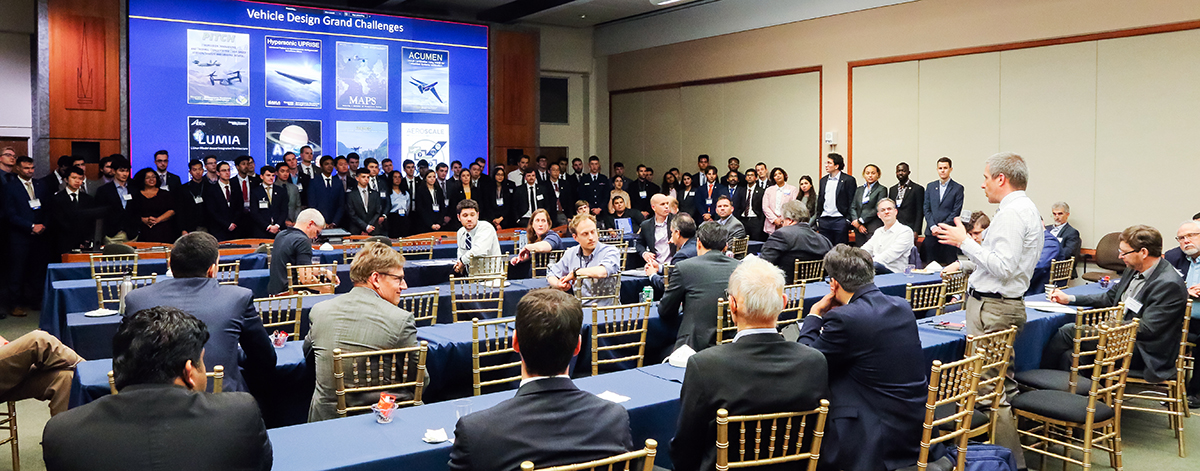
The Aerospace Systems Design Laboratory (ASDL) held its annual External Advisory Board (EAB) meeting and review, May 4 - 5. After two years of being virtual, this year the event was hybrid and attracted approximately 150 attendees evenly split between in-person and virtual participation.
This EAB is centered around the ASDL Grand Challenge program, which serves as an important means of teaching and training first year master’s students. In the Grand Challenges, incoming graduate students are divided into teams and each team is given a broad, open-ended problem to address. Students are involved in both a vehicle and a system of systems project.
The projects are conducted over the course of two academic semesters, concluding with a final presentation to sponsors and other stakeholders during EAB. In 2022, the event featured 32 Grand Challenges as well as a special presentation about a project from the joint International Security and Aerospace Systems certificate, a collaboration between the Daniel Guggenheim School of Aerospace Engineering (AE School) and the Sam Nunn School of International Affairs.
The scope of Grand Challenge topics is current and relevant to the aerospace industry, and the topics are often inspired by sponsored research projects. According to ASDL Director and AE School Professor Dimitri Mavris, “From these Grand Challenges, students learn many needed skills that are not typically taught in a classroom, such as good research practices, how to address a new problem are with which one may be unfamiliar, how to manage time on a large-scale research project, how to effectively communicate results, and many others.”
The event included a poster session/reception where students presented the project poster to the project sponsors and other attendees. There was also a feedback session during which the attendees provide constructive comments to the students about their work as well as advice on how use the critical system thinking skills they learned through the course of the projects.
EAB has special meaning this year, as the ASDL celebrates its 30th anniversary. “Over the past three decades the lab has grown, developed new methods and approaches, and performed exciting and interesting research,” said Mavris. We cannot have done this without the support of our sponsors.